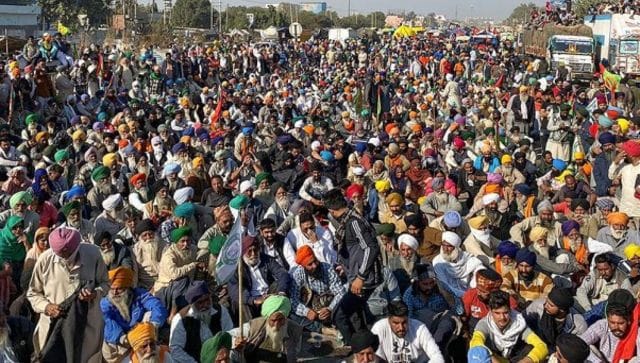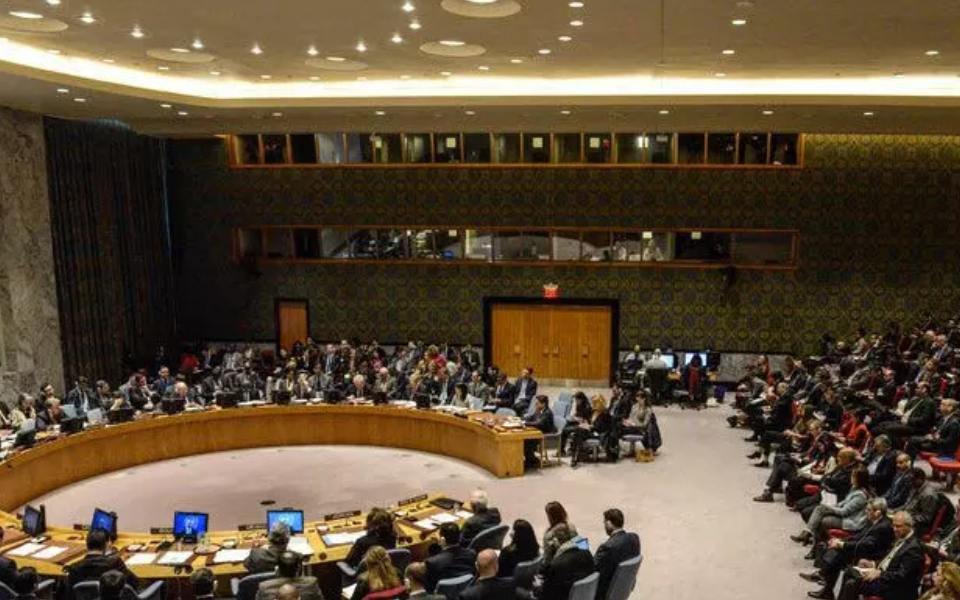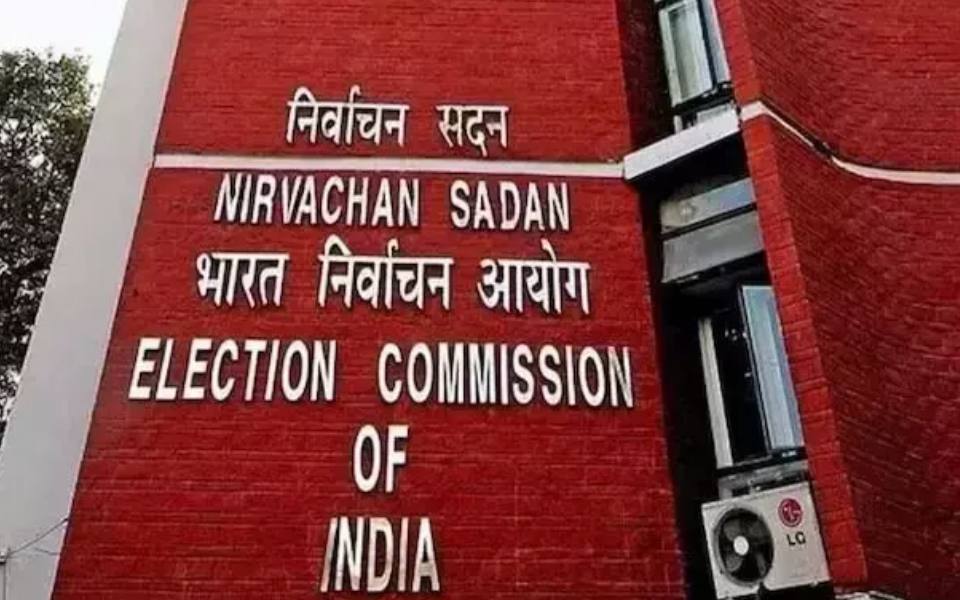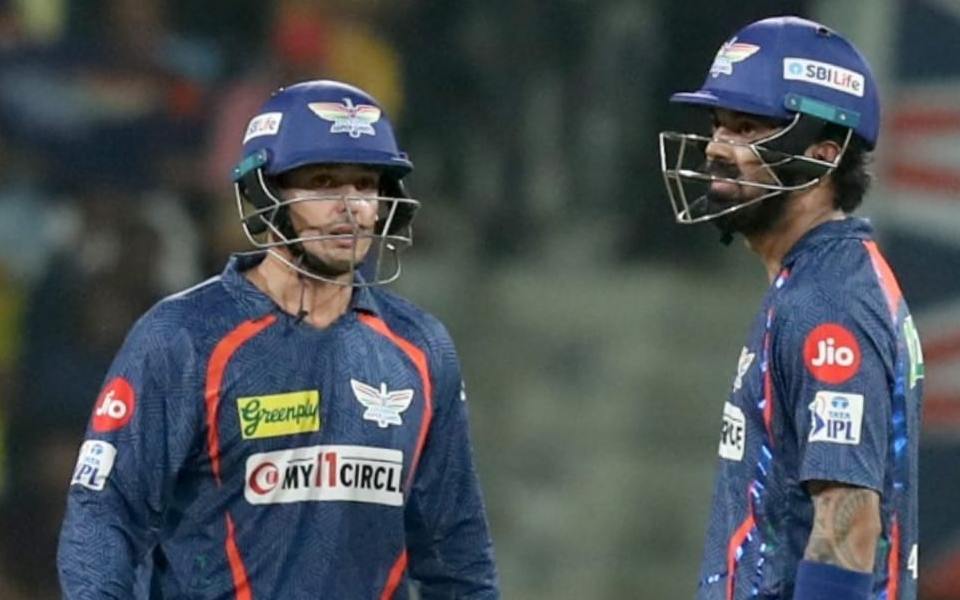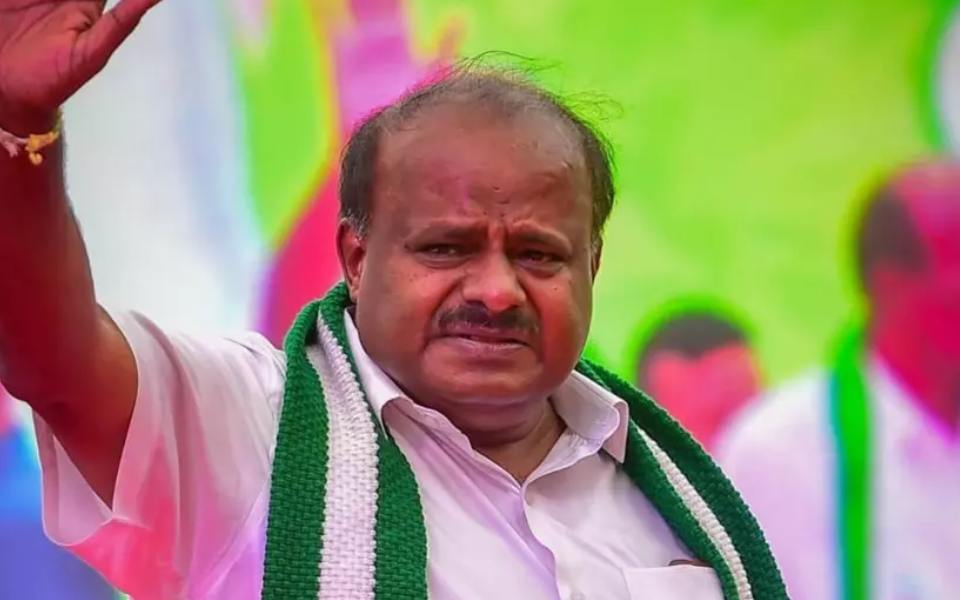New Delhi: The government's negotiations with protesting farm unions hit a roadblock on Friday as the farmer leaders stuck to their demands for a complete repeal of three farm laws they find pro-corporate and a legal guarantee for MSP, even as the Centre asked them to reconsider its proposal for putting the Acts on hold for 12-18 months.
Unlike the last 10 rounds of talks, the 11th round could not even reach a decision on the next date for the meeting as the government also hardened its position saying it is ready to meet again once the unions agree to discuss the suspension proposal. This followed a big climbdown made by the Centre during the last round when they offered to suspend the laws and form a joint committee to find solutions.
Farmer leaders said they will intensify their agitation now and alleged that the government's approach was not right during the meeting. They also said their tractor rally will go ahead as per the plans on January 26 and unions have told the police that it is the government's responsibility to maintain peace.
While the meeting lasted for almost five hours, the two sides sat face to face for less than 30 minutes. In the very beginning, the farmer leaders informed the government that they have decided to reject the proposal made by the government in the last round of talks on Wednesday.
The three central ministers, including Agriculture Minister Narendra Singh Tomar, urged the union representatives to reconsider their stand, after which the two sides went for a lunch break.
The break, during which the farmer leaders had their langar (community kitchen) food, lasted for more than three hours and also saw the 41 farmer leaders holding consultations among themselves, at times in smaller groups, while the three central ministers waited in a separate room at Vigyan Bhawan.
After the meeting, Bharatiya Kisan Union (Ugrahan) leader Joginder Singh Ugrahan said the discussions have broken down as the unions rejected the government's proposal.
Another farmer leader Rakesh Tikait said the ministers said the suspension period can be increased to up to 2 years, but the unions remained firm on their demand for a complete repeal and a legal guarantee for Minimum Support Price mechanism for procurement of crops. The ministers told the unions that they have been given all possible options and they must discuss internally the proposal of suspending the laws.
Tomar told the farmer leaders that the government would be ready for another meeting if farmers want to discuss the proposal, sources said.
The minister also thanked unions for their cooperation and said while there were no problems with the laws, the government offered to suspend them as respect for the protesting farmers.
Coming out of the meeting venue, farmer leader Shiv Kumar Kakka said there was no headway in the discussions and the government asked unions to deliberate on its proposal again.
Kakka was the first to leave the meeting, but said it was for "some personal reasons".
In the last round of meetings held on Wednesday, the government had offered to put on hold the three laws and set up a joint committee to find solutions. However, after internal consultations on Thursday, the farmer unions decided to reject the offer and stick to their two major demands -- the repeal of the three laws and a legal guarantee of the minimum support price (MSP).
"We told the government that we will not agree to anything other than the repeal of the laws. But the minister asked us to discuss separately again and rethink the matter and convey the decision," farmer leader Darshan Pal told PTI.
BKU's Tikait said: "We conveyed our position clearly to the government that we want a repeal of the laws and not a suspension. The ministers asked us to reconsider our decision."
Some leaders expressed apprehensions that the movement will lose its momentum once the farmers go away from Delhi borders.
Harpal Singh, President of Bhartiya Kisan Union -- Asli Arajnaitik (Real Apolitical), said, "Even if we accept the government's offer, our fellow brothers sitting at Delhi borders will not accept anything other than a repeal of the laws. They will not spare us. What achievement will we show to them?"
He also questioned the government's credibility, alleging it was difficult to believe that they will keep their word on putting the laws on hold for 18 months.
"We will die here but we will not return without getting the laws repealed," Singh said.
Along with Union Agriculture Minister Tomar, Railways, Commerce and Food Minister Piyush Goyal and Minister of State for Commerce Som Parkash are also participating in the talks with representatives of 41 farmer unions at the Vigyan Bhawan here.
In a full general body meeting on Thursday, Samyukt Kisan Morcha, the umbrella body of the protesting unions, rejected the government's proposal.
"A full repeal of three central farm Acts and enacting a legislation for remunerative MSP for all farmers were reiterated as the pending demands of the movement," the Morcha said in a statement.
Thousands of farmers, mainly from Punjab, Haryana and western Uttar Pradesh, are protesting at various border points of Delhi for over a month now against the three laws.
Farmer groups have alleged these laws will end the mandi and MSP procurement systems and leave the farmers at the mercy of big corporates, even as the government has rejected these apprehensions as misplaced.
On January 11, the Supreme Court stayed the implementation of the three laws till further orders and appointed a four-member panel to resolve the impasse. Bhartiya Kisan Union president Bhupinder Singh Mann had recused himself from the committee appointed by the apex court.
Shetkari Sanghatana (Maharashtra) president Anil Ghanwat and agriculture economists Pramod Kumar Joshi and Ashok Gulati, the other three members on the panel, started the consultation process with stakeholders on Thursday.
Let the Truth be known. If you read VB and like VB, please be a VB Supporter and Help us deliver the Truth to one and all.
United Nations, Apr 19: The US has vetoed a resolution in the UN Security Council on the latest Palestinian bid to be granted full membership of the United Nations, an outcome lauded by Israel but criticised by Palestine as “unfair, immoral, and unjustified".
The 15-nation Council voted on a draft resolution Thursday that would have recommended to the 193-member UN General Assembly “that the State of Palestine be admitted to membership in the United Nations.”
The resolution got 12 votes in its favour, with Switzerland and the UK abstaining and the US casting its veto.
To be adopted, the draft resolution required at least nine Council members voting in its favour, with no vetoes by any of its five permanent members - China, France, Russia, the United Kingdom and the United States.
Palestinian attempts for recognition as a full member state began in 2011. Palestine is currently a non-member observer state, a status that was granted in November 2012 by the UN General Assembly.
This status allows Palestine to participate in proceedings of the world body but it cannot vote on resolutions. The only other non-member Observer State at the UN is the Holy See, representing the Vatican.
Israel’s Foreign Minister Israel Katz praised the US for vetoing what he called a “shameful proposal.”
“The proposal to recognise a Palestinian state, more than 6 months after the largest massacre of Jews since the Holocaust and after the sexual crimes and other atrocities committed by Hamas terrorists was a reward for terrorism”, Katz wrote on X, after the US veto.
US Ambassador Robert Wood, Alternative Representative for Special Political Affairs, said in the explanation of the vote at the Security Council meeting on Palestinian membership that Washington continues to strongly support a two-state solution.
“It remains the US view that the most expeditious path toward statehood for the Palestinian people is through direct negotiations between Israel and the Palestinian Authority with the support of the United States and other partners,” he said.
“This vote does not reflect opposition to Palestinian statehood, but instead is an acknowledgement that it will only come from direct negotiations between the parties.”
Wood said there are “unresolved questions” as to whether Palestine meets the criteria to be considered a State.
“We have long called on the Palestinian Authority to undertake necessary reforms to help establish the attributes of readiness for statehood and note that Hamas - a terrorist organisation - is currently exerting power and influence in Gaza, an integral part of the state envisioned in this resolution,” he said, adding that “For these reasons, the United States voted “no” on this Security Council resolution.”
Wood noted that since the October 7 attacks last year against Israel by Hamas, US President Joe Biden has been clear that sustainable peace in the region can only be achieved through a two-state solution, with Israel’s security guaranteed.
"There is no other path that guarantees Israel’s security and future as a democratic Jewish state. There is no other path that guarantees Palestinians can live in peace and with dignity in a state of their own. And there is no other path that leads to regional integration between Israel and all its Arab neighbours, including Saudi Arabia,” he said.
The Palestinian Authority President, Mahmoud Abbas, sharply criticised the US veto, saying that it was “unfair, immoral, and unjustified, and defies the will of the international community, which strongly supports the State of Palestine obtaining full membership in the United Nations.”
Riyad Mansour, Permanent Observer of the State of Palestine, said that “our right to self-determination has never once been subject to bargaining or negotiation.
“Our right to self-determination is a natural right, a historic right, a legal right. A right to live in our homeland Palestine as an independent state that is free and that is sovereign. Our right to self-determination is inalienable...,” he said.
Getting emotional and choking up as he made the remarks, Mansour said that a majority of the Council members “have risen to the level of this historic moment” and have stood “on the side of justice, freedom and hope.”
He asserted that Palestine’s admission as a full member of the UN is an “investment in peace.”
On April 2, 2024, Palestine again sent a letter to UN Secretary-General Antonio Guterres requesting that its application for full UN membership be considered again.
For a State to be granted full UN membership, its application must be approved both by the Security Council and the General Assembly, where a two-thirds majority of the members present and voting is required for the State to be admitted as a full member.
Earlier in the day, Guterres, in his remarks to a Council meeting on the Middle East, warned that the region is on a “knife edge”.
“Recent escalations make it even more important to support good-faith efforts to find lasting peace between Israel and a fully independent, viable and sovereign Palestinian state,” Guterres said.
“Failure to make progress towards a two-state solution will only increase volatility and risk for hundreds of millions of people across the region, who will continue to live under the constant threat of violence,” he said.
The UN, citing the Ministry of Health in Gaza, said that between October 7 last year and April 17, at least 33,899 Palestinians have been killed in Gaza and 76,664 Palestinians injured. Over 1,200 Israelis and foreign nationals, including 33 children, have been killed in Israel, the vast majority on October 7.
As of April 17, Israeli authorities estimate that 133 Israelis and foreign nationals remain captive in Gaza, including fatalities whose bodies are withheld.

